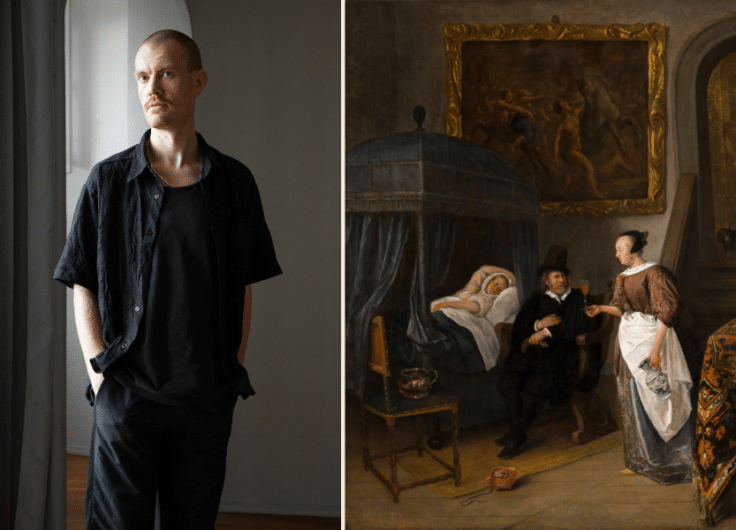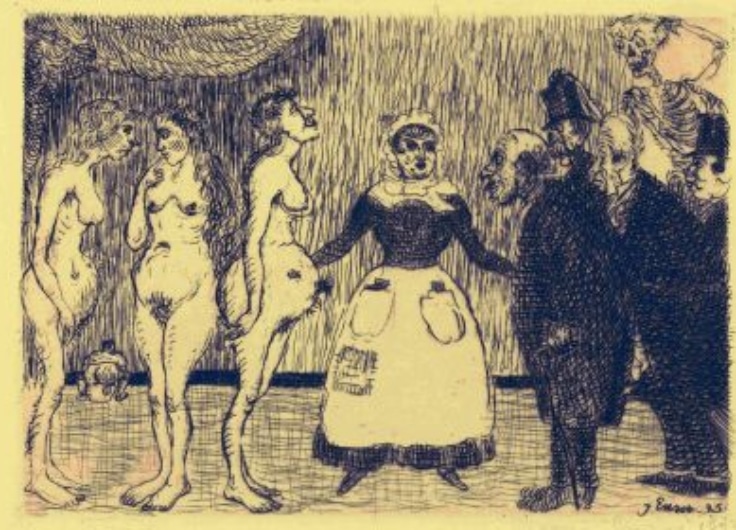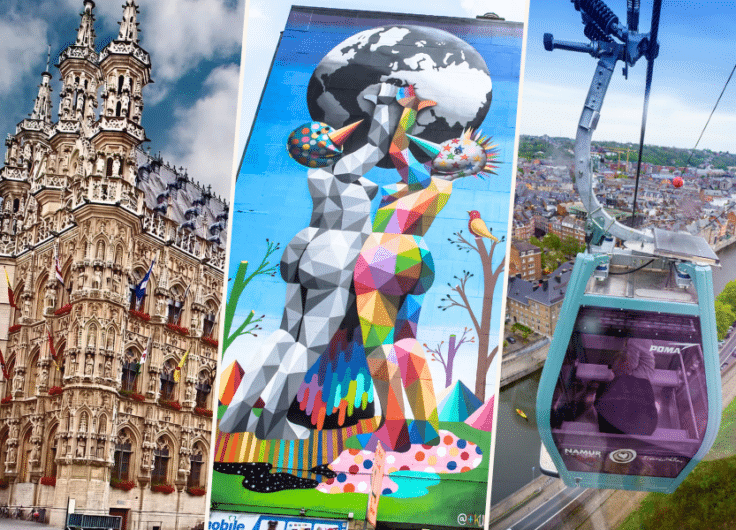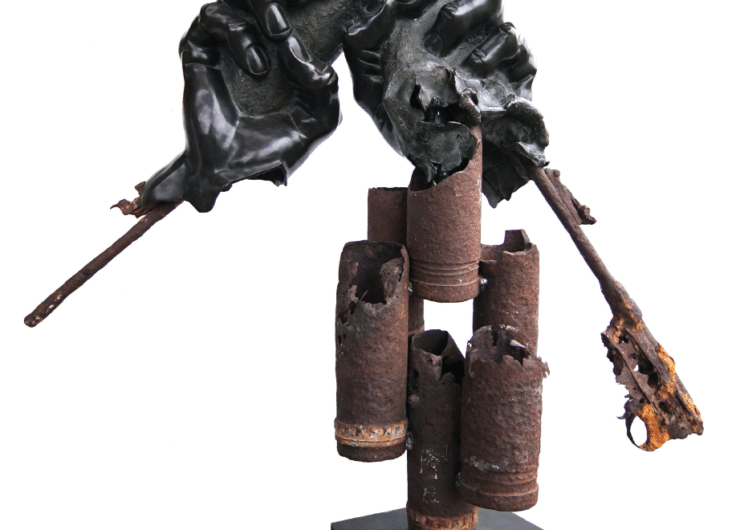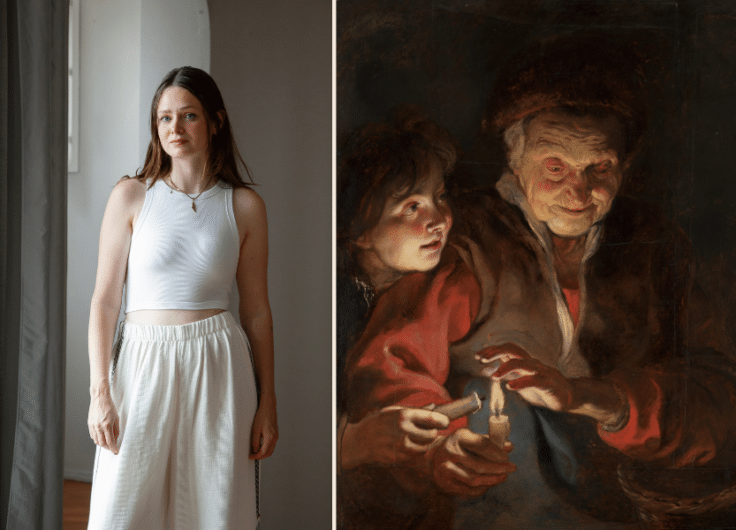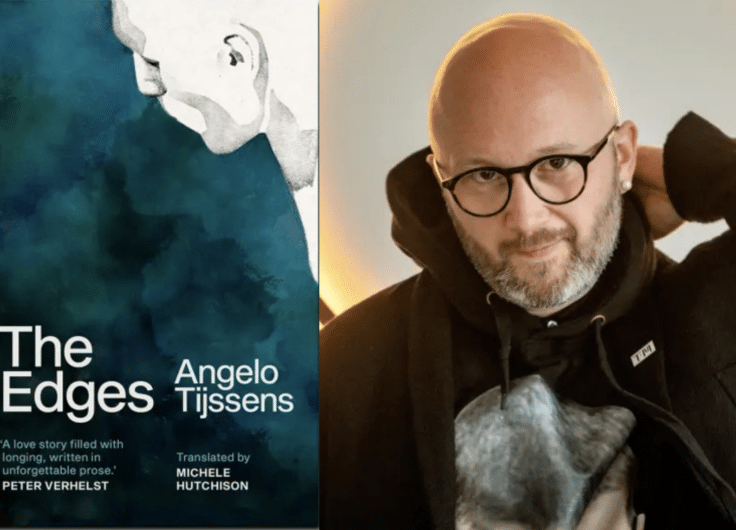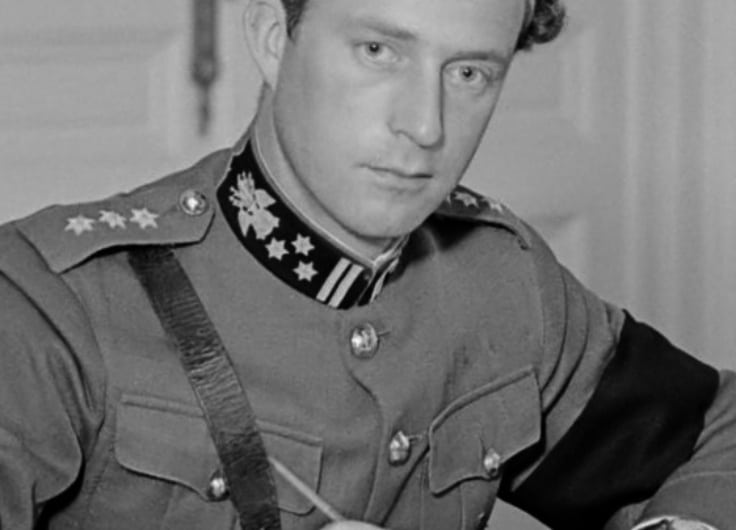Eighteen young Flemish and Dutch authors bring an artefact to life from the Slavery exhibition at the Rijksmuseum in Amsterdam. Shimanto Reza wrote a letter inspired by a map of the Bay of Bengal from around 1695.
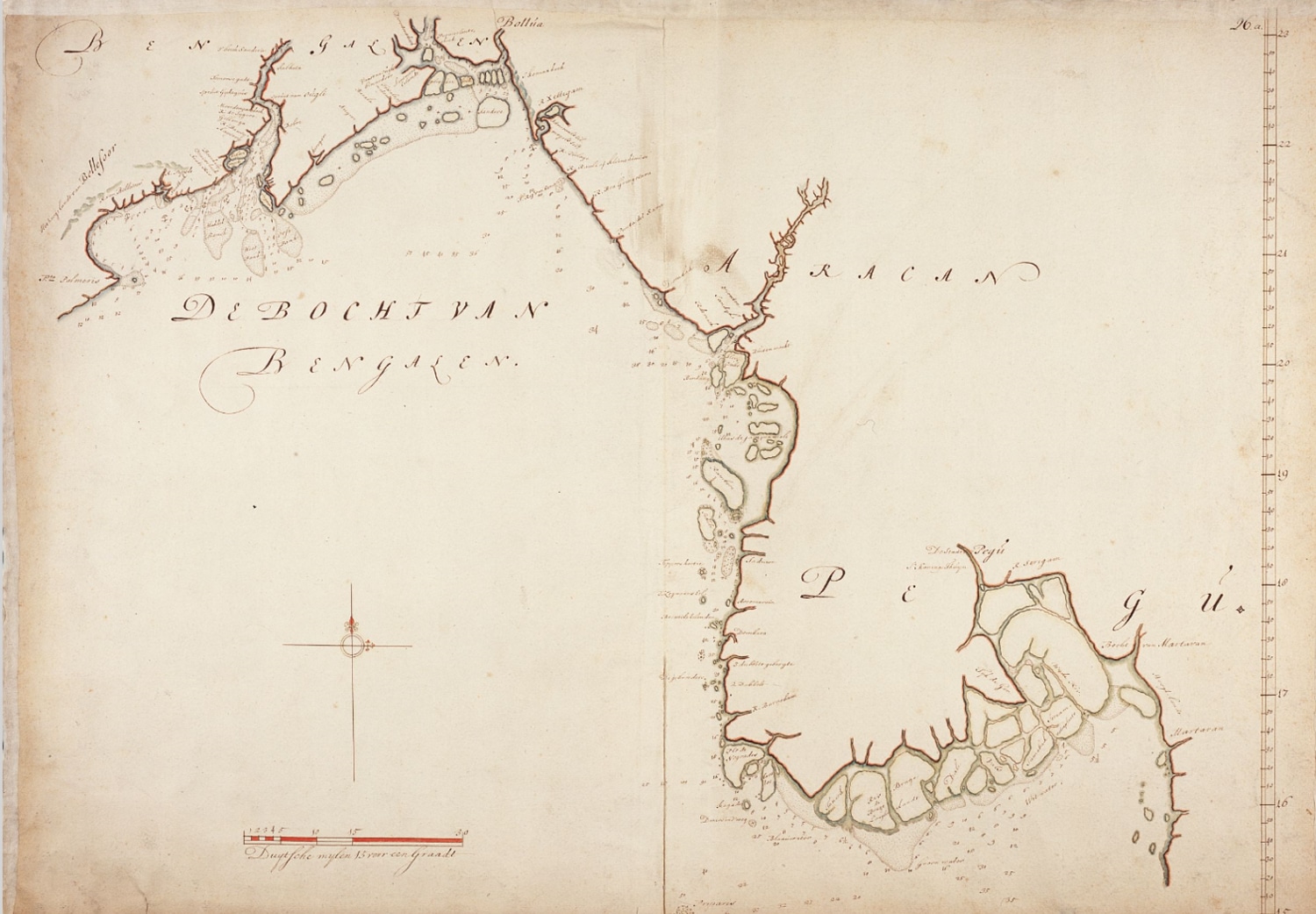 Isaac de Aracan / Pegu Graaff, map of the Bay of Bengal, ca. 1695
Isaac de Aracan / Pegu Graaff, map of the Bay of Bengal, ca. 1695© National Archives, The Hague / Marianne Hommersom
Lines
My dearest,
Thank you for your letter. It left me wondering whether you’d seen the document enclosed with my previous missive? It was a copy of my map, the one that will serve as a model for the Africa and Asia atlas by Mr de Graaff – a great leap forward for the Company (and your husband is helping it along). Did you see the delicate lettering? Or would you have preferred to see a water-blowing whale in the ocean and temples on land perhaps? You must understand that I am not one for frivolity. I am a businessman and I serve my country, and my maps do what maps are supposed to do. Others spend days measuring even the unnavigable little streams, their every curve and bend, as though they were secret routes to El Dorado. You will even find detailed drawings of native beasts on their maps. (But are they really maps when you can no longer make out the borders? Did you see the thick shoreline on mine?) Not to mention their private sketchbooks! Page after page filled with onion-shaped domes, shoes with upturned toes, bits of fabric pasted in, portraits with speaking mouths and exaggerated eyes with big lashes. If there is anything that speaks to me here it is not the unseemliness on land, but the nocturnal ocean – that matt black blanket that seems to cloak the world’s forgotten harvests like an eastern coastal forest. Under cover of the moon I almost wax lyrical, but the morning sun burns my words away, reminding me of the day with its frontiers and duties.
‘Duties’ is a misleading word – what it comes down to is that I do all this for you and the children, don’t ever forget that. Even when I work on my correspondence and maps in the evening, it is you I think of. ‘With that handwriting the Company will never hire you, it’s worse than your father’s spidery scribbles,’ you said to me years ago. I can summon up your voice so clearly in the silence surrounding my writing table that I almost feel the glow of our hearth on my cheek.
Oh well, maybe I do need some distraction on empty evenings. But where to find companionship in this darkness? Another Company employee joins his workers around their fire in the evening. With their hands all in one big pot, they knead slimy dough balls. And I believe I may have heard him speak to them in their own languages. He imagines that they tell him hidden truths when he comes and sits by their stove, as if they would forget that in the morning he will be enforcing discipline again. Where does it end when we lose sight of those boundaries? If I think about it too long, I lose my bearings and have to remind myself why I am doing all this – for you, at home, far away! How delightful to picture you sitting around my map together, by the light of the hearth, speaking of my courage. It gives me the strength to do my duty again tomorrow with unswerving rectitude.
Loving regards,
Your husband
This text was written during a residency at Flemish-Dutch cultural organisation Huis deBuren in association with the Biermans-Lapôtre Foundation.


